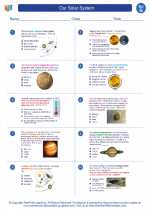Our Solar System -> natural gas
Natural Gas
Natural gas is a naturally occurring hydrocarbon gas mixture consisting primarily of methane, but can also include other hydrocarbons such as ethane, propane, and butane. It is formed over millions of years from the remains of ancient plants and animals that have been buried and exposed to heat and pressure deep within the earth's crust.
Composition
The primary component of natural gas is methane, which has the chemical formula CH4. It is a colorless, odorless gas and is highly flammable. In addition to methane, natural gas can also contain small amounts of other hydrocarbons, as well as non-hydrocarbon gases such as carbon dioxide, nitrogen, and hydrogen sulfide.
Sources
Natural gas is typically found in underground rock formations, often alongside petroleum deposits. It can be extracted through drilling wells and then processed to remove impurities before being transported for use.
Uses
Natural gas is a versatile energy source that has a wide range of uses, including heating residential and commercial buildings, generating electricity, and powering vehicles. It is also used as a feedstock for the production of chemicals and other products.
Environmental Impact
When burned, natural gas produces fewer greenhouse gas emissions compared to other fossil fuels, making it a relatively cleaner energy source. However, the extraction and transportation of natural gas can result in methane leaks, which is a potent greenhouse gas, contributing to climate change.
Study Guide
- What is the primary component of natural gas?
- How is natural gas formed?
- What are the main sources of natural gas?
- What are the uses of natural gas?
- What is the environmental impact of natural gas?
[Natural Gas] Related Worksheets and Study Guides:
.◂Science Worksheets and Study Guides Seventh Grade. Our Solar System

 Activity Lesson
Activity Lesson
 Activity Lesson
Activity Lesson
 Worksheet/Answer key
Worksheet/Answer key
 Worksheet/Answer key
Worksheet/Answer key
 Worksheet/Answer key
Worksheet/Answer key
 Worksheet/Answer key
Worksheet/Answer key
 Vocabulary/Answer key
Vocabulary/Answer key
 Vocabulary/Answer key
Vocabulary/Answer key
 Vocabulary/Answer key
Vocabulary/Answer key
